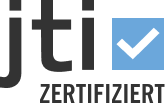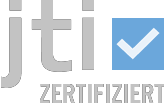Translation of the German information on the protection of minors
Whether for play, learning or communication, the internet plays an important role in the daily lives of children and adolescents; however, not all online content is appropriate for them.
As a provider of internet and telecommunications services, WEB.DE is aware of these risks and takes responsibility by shaping its own offerings in accordance with youth protection regulations, through a careful selection of content, advertising, and compliance with the terms and conditions for display.
Reporting content that is harmful to the development of minors
Furthermore, you always have the option to report to WEB.DE any content within the scope of WEB.DE's offerings or of the services provided by WEB.DE for its customers (domains, websites, etc.) that is harmful to or poses a risk to the development of children and adolescents.
If you wish, you can comment on editorial content using the “Report a violation” function displayed next to the comments.
For all other reporting, please contact the Youth Protection Team at jugendschutz@info.web.de, and be sure to provide the relevant information, such as the domain name, URL and the specific content. The team will review your report and respond accordingly.
Advice and help
Below, you will find useful advice and information for parents, children and adolescents. Additional information and current news on the topic of the protection of minors as well as laws and brochures can also be found at the German Federal Ministry for Family Affairs, Senior Citizens, Women and Youth.
- Telephone number for children and adolescents/parents: The “Nummer gegen Kummer” hotline (free of charge and anonymous)
- Telephone counseling for depression and suicidal thoughts: 08 00/ 11 10 - 111 (Germany), 142 (Austria), 143 (Switzerland) (free of charge and anonymous)
- Concerns regarding children and adolescents as well as suspicion of domestic violence/ sexual abuse: Help hotline of the German Federal Ministry for Family Affairs, Senior Citizens, Women and Youth at 0800 22 55 530 (free of charge and anonymous)
- Media education: information and tips for parents and educational professionals from the German Federal Ministry for Family Affairs, Senior Citizens, Women and Youth
- Media education: Federal Review Board for Media Harmful to Young People (BPjM) page providing contact points for media education
- Complaint offices: jugendschutz.net, eco, FSM and KJM
Parents can take precautions to protect their children by limiting their internet access to age-appropriate uses and help their children by educating them on the use of media to build their media skills from a young age. Youth protection programs can be used as a protective measure, and parental guidance for children and adolescents – starting from the time they begin to use media – makes an essential contribution to promoting safe internet use. In addition to helping children understand technology, parents can explain the rules of conduct and the potential risks of internet use.
Youth protection programs
There are a large number of youth protection programs aimed at protecting children and adolescents from content which is not developmentally and age-appropriate. The Commission for the Protection of Minors in the Media (KJM) has approved programs for the protection of adolescents that meet the requirements of the Interstate Treaty on the Protection of Minors in the Media – including the JusProg program, which is available for download free of charge.
Another solution for filtering unsuitable content is the BPjM module, which the German Federal Review Board for Media Harmful to Young Persons developed together with the FSM. The BPjM module prevents access to online content which is classified as inappropriate under the Interstate Treaty on the Protection of Minors in the Media.
In addition, settings for internet use and other programs can protect children and adolescents. For example, there are settings which can be selected to protect young people when they use search engines.
Media skills
In line with the basic idea of protecting young people from harmful media, the promotion of worry-free participation (protection concept) and the empowerment of children and adolescents to use media (media skills) go hand in hand.
The variety of ways to access the internet – such as PCs, tablets and smartphones – poses a challenge for the careful guidance of children and adolescents as they build their media skills. Added to this is the multitude of services that can be accessed on smartphones that are popular among children and adolescents, such as WhatsApp and other messengers, Facebook, YouTube, Twitter, Snapchat, Instagram, TikTok, etc. It is important to teach children and adolescents how to use these services responsibly and age-appropriately. Settings to restrict usage times and individual age settings for these applications can be used to guide usage behavior.
At the same time, it is important to help children right from the start by letting them know “I’m with you” in the event of a problem, and to point out the potential risks of internet use (cyber-bullying, cyber-grooming, sexting, subscription traps, scams, mobile phone addiction, other types of harassment and disturbing content, data protection traps, etc.) at an early age so that children can be prepared to act appropriately if they encounter these situations or to seek additional guidance from their parents or an appropriate contact point.
You can find more tips on media education, contact points and more under the section on counseling services.
Children’s apps and internet services
An overview by the Deutsches Jugendinstitut e.V. of apps which are suitable for children can be found here, and the German Federal Review Board for Media Harmful to Young People (BPjM) page about internet services which are suitable for children and adolescents can be found here.


"So arbeitet die Redaktion" informiert Sie, wann und worüber wir berichten, wie wir mit Fehlern umgehen und woher unsere Inhalte stammen. Bei der Berichterstattung halten wir uns an die Richtlinien der Journalism Trust Initiative.
